Related Research Articles

Roxy Music are an English rock band formed in 1970 by Bryan Ferry—who became the band's lead vocalist and principal songwriter—and bassist Graham Simpson. The other longtime members are Phil Manzanera (guitar), Andy Mackay, and Paul Thompson with former members including Brian Eno, Eddie Jobson and John Gustafson (bass). Although the band took a break from group activities in 1976 and again in 1983, they reunited for a concert tour in 2001, and have toured together intermittently since. Ferry frequently enlisted band members as session musicians for his solo releases.

Gustavo Adrián Cerati Clarke was an Argentine musician, singer-songwriter and record producer, who gained international recognition for being the leader, vocalist, composer and guitarist of the rock band Soda Stereo. He is widely considered by critics, specialized press and musicians as one of the most important and influential artists of Latin rock.

Carlos Alberto GarcíaMoreno better known by his stage name Charly García, is an Argentine singer-songwriter, multi-instrumentalist, composer and record producer, considered one of the most important and avant-garde figures of Argentine and Latin American music. Named the father of rock nacional, García is widely acclaimed for his recording work, both in his multiple groups and as a soloist, due to his complex compositions, addressing multiple genres, such as pop rock, funk rock, folk rock, jazz, synth-pop and progressive rock, and for his transgressive and critical statements towards modern Argentine society, especially during the era of the military dictatorship, partly due to his rebellious, extravagant and anti-systemic personality, which brought notorious attention in the media over the years.

Almendra was one of the most important rock groups from Buenos Aires, Argentina in the late 1960s.


Luis Alberto Spinetta, nicknamed "El Flaco", was an Argentine singer, guitarist, composer and poet. One of the most influential rock musicians of Argentina, he is regarded as one of the founders of Argentine rock, considered the first incarnation of Spanish-language rock. Born in Buenos Aires in the residential neighbourhood of Belgrano, he was the founder of iconic rock bands including Almendra, Pescado Rabioso, Invisible, Spinetta Jade, and Spinetta y Los Socios del Desierto. In Argentina January 23rd is celebrated as "Día Nacional del Músico" in honor of Spinetta's birth

Sui Generis is one of the most influential rock bands in Argentine history, enjoying enormous success and popularity during the first half of the 1970s and a following that lasts to the present throughout South America. Its youthful songs, classical at sing-along gatherings, became hymns for successive generations of Argentines and are part of the national cultural landscape. Charly Garcia was author of most ot the songs and arrangements, which went from the simple folk style guitar, piano and flute of their greatest hits in the first and second album, to the more developed symphonic/prog rock of their last concept album. Sui Generis disbanded on September 5, 1975, in a mythical concert which was turned into a popular record and film, and, despite concerts that took place in 1980 and 2001, a permanent re-formation has been ruled out.
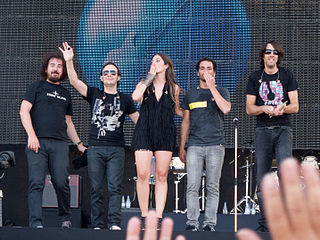
La Oreja de Van Gogh is a Spanish pop band from Donostia-San Sebastián, Spain. The band's lyrics and compositions are written primarily by Xabi San Martín, and additionally by Pablo Benegas and Amaia Montero. The lyrical themes of their songs typically include love, friendship and relationships. Since their debut, they have sold more than 8 million albums worldwide.
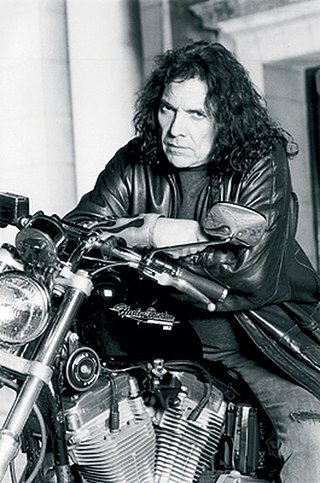
Norberto Aníbal Napolitano, popularly known as Pappo, was an Argentine rock musician, guitarist, singer and songwriter. He was and is one of the most influential figures in Argentine music, and in addition to being one of the forerunners of Argentine rock. Besides, he was one of the first to venture into heavy metal in his country and blues of the same.

Andrés Calamaro is an Argentine musician, composer and Latin Grammy winner. He is considered one of the greatest and most influential rock artists in Spanish. He is also one of the most complete artists for his wide range of musical styles, including funk, reggae, ballads, boleros, tangos, jazz. His former band Los Rodríguez was a major success in Spain and throughout Latin America mainly during the 1990s. He is multi-instrumentalist and became one of the main icons of Argentine rock, selling over 1.3 million records to date.

Vox Dei is an Argentine rock band credited for recording the country's first concept album, La Biblia. Their most prolific years were the 1970s, when they recorded ten albums.
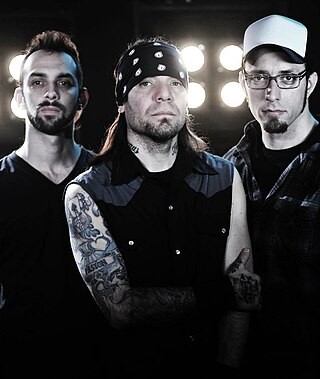
Carajo was an Argentinian rock band from Buenos Aires. It was formed in 2000 with Marcelo "Corvata" Corvalan on bass and vocals, Andres "Andy" Vilanova on drums and Hernan "Tery" Langer on guitar and backing vocals. The first two share the history of having been part of the band A.N.I.M.A.L. In 2020, the band's breakup was announced.

Manal was an Argentine rock group. Together with Almendra and Los Gatos, they are considered founders of Argentine rock. The band members were Claudio Gabis on guitar, Javier Martínez on drums and vocals, and Alejandro Medina on bass and vocals. Martínez was the band's lead vocalist and leading songwriter.
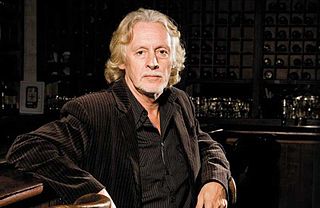
Carlos Alberto Mestre mostly known by his stage name Nito Mestre, is an Argentine musician, founding member –along with Charly García– of Sui Generis, member of PorSuiGieco, bandleader of Nito Mestre y los Desconocidos de Siempre and a recording solo artist. Sui Generis, was initially formed in 1969 by Charly García, Nito Mestre, Rolando Fortich, Juan Belia (guitar), Alberto Rodriguez (drums) and Carlos Piegari (vocals). Later on, Sui Generis became a duo as everyone left except for García. After the band split in 1975, Nito Mestre formed a new band called "Nito Mestre y los Desconocidos de Siempre" with María Rosa Yorio on vocals, Rodolfo Gorosito on guitar, Alfredo Toth on bass, Ciro Fogliatta on keyboards and Juan Carlos "Mono" Fontana as a drummer. In the early 80s, Nito pursued a solo career.
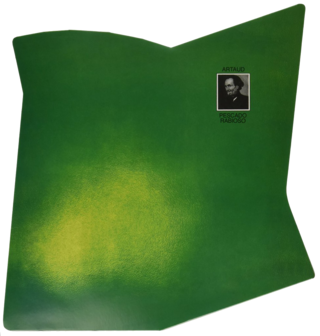
Artaud is a studio album credited to Argentine rock band Pescado Rabioso, released in October 1973 on Talent-Microfón. It is essentially the second solo album by singer-songwriter Luis Alberto Spinetta, who used the group's name despite their disbandment earlier that year.

La Pipa de la Paz is the third studio album by Colombian band Aterciopelados. Produced by Phil Manzanera in London with this project they became the first Colombian artist to be nominated for a Grammy in the Best Latin Rock/Alternative Performance category. This album spawned some of their most well-known songs and greatest hits like Cosita Seria, Baracunatana, No Necesito, La Culpable, Expreso Amazonia, La Voz de la Patria, Te Juro Que No and the title track La Pipa de la Paz.

Félix Francisco Nebbia Corbacho, better known as Litto Nebbia is an Argentine singer-songwriter, musician and producer, prominent in the development of the early Argentine rock scene.

Invisible was an Argentine band formed by Luis Alberto Spinetta following the breakup of Pescado Rabioso in 1973 and the release of Artaud. The original lineup of the band was completed by Carlos "Machi" Rufino and Héctor "Pomo" Lorenzo (drums), both of whom conformed Pappo's Blues' rhythm section at the time. From 1976 until their breakup a year later, the band expanded into a quartet with the inclusion of guitarist Tomás Gubitsch.

Richter is an electronic rock band from Buenos Aires, Argentina.

Almendra is the self-titled debut studio album by Argentine rock band Almendra which was released in 1969 on Vik, a subsidiary of RCA Victor. To distinguish it from the band's next release, Almendra II, it is also known as Almendra I. The album represented the first full-length musical endeavour of nineteen-year-old Luis Alberto Spinetta, having formed the band in the mid 1960s along with Emilio del Guercio, Edelmiro Molinari and Rodolfo García. The famous artwork, showing a crying man with a toy arrow stuck on his head, was designed by Spinetta to embody the different lyrical themes of the album.
References
- ↑ "Color Humano -Argentine Groups C". Archived from the original on 2006-10-15. Retrieved 2006-10-03.
- ↑ Color Humano www.rock.com.ar (Spanish)